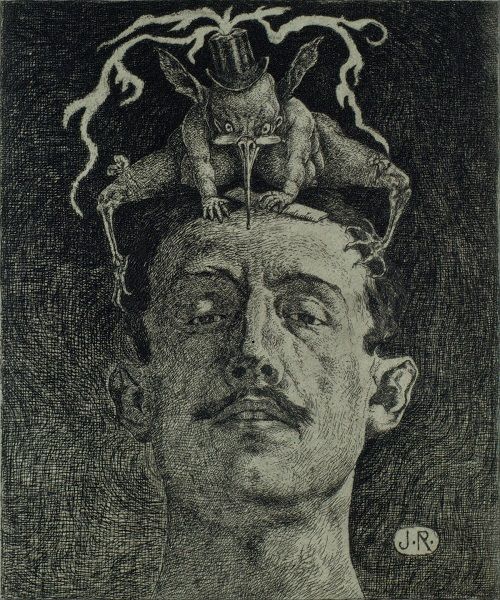Could you imagine a world in which praise is more acceptable and more widespread than criticism? Or a world in which the choice between these two options is perceived as a narrowing of the worldview? According to the vision of the father of psychoanalysis Sigmund Freud, human beings are ambivalent animals: what we also hate and love; which we love can easily hate. Anyone who can satisfy us may well take away our satisfaction. The one who has the power to frustrate us is the one who is capable of satisfying us. We start criticizing when we are not happy when we are frustrated. Through criticism, we express our own dissatisfaction and frustration. We praise when satisfied, satisfied. This ambivalence does not mean mixed feelings, it means opposing feelings.

Love and Hate each other give a meaning
The language of love and hate is well-known to everyone, yet powerless to express what we really feel. These are strong and elemental feelings, through which we perceive the world around us. They depend on each other, since it is impossible to have one without the other. They make each other meaning. The way we hate people depends on how we love them. These so contradictory feelings come from the same place and have an impact on everything we do. They are what gives us insight whether something matters to us and what it is. This is the way we recognize that something or someone has become significant to us. Where there is devotion, there is a protest where there is confidence, there is doubt.
In self-criticism, this contradiction is directed to the self
And while these are relationships in which there is a relationship, that is, a person has a relation to something / someone outside, in self-criticism this contradiction is directed at yourself, you are both the criticized and the critic, the hangman and the victim. How does this happen?
Id, ego and super-ego
Freud conditionally divides the human psyche into three major components: It, Id, ego and super-ego. It is the unconscious place where the mighty forces, called the impulses, act. They can be constructive or destructive, their primary purpose is to provide bliss and pleasure. The unconscious is hiding passions and desires, which in most cases we have no idea, and which are often contrary to all established moral norms. It could be called the animal part of the human being. With their embarrassment he has taken over the super-ego He is the store of values and ideals, the guard who always follows and constantly reminds what is right and what is not. This part of the mental apparatus is built up by the authorities from which one teaches morality, ethics, acceptable behavior and even "right" feelings. From the very beginning of its existence begins to be built by parents, teachers, God, the Party, the television, the social environment, the authors, the books we read, the gurus, the people admire and imitate. Between these two belligerents stands the ego trying to understand what the Id desires and satisfy his need for pleasure, taking into account the boundaries and principles imposed by the super ego and reality. It passes through the information from inside to reality and from reality to inside. The ego can be seen as consciousness, individuality, personality.
The critical self
Self-criticism is essential to our perceptions, to the way we feel ourselves, to our so-called self. We continually, though often unconsciously, cripple and distort our own character. Everyone with at least a well-developed and well-preserved psyche knows the detrimental impact of self-accusations and self-criticism. </ Strong> This internal voice, who acts as a malicious prosecutor and constantly remarks, objections and accusations. The voice, which for no apparent reason is capable of crushing us, that we are absolutely incapable of explaining to anyone, even to ourselves, exactly how we have been brought to this state.Think for a moment if this inner, merciless voice materializes and you meet such a person in society with such accusatory character, will not you think there is something seriously wrong in it? He would be terribly boring and disgustingly cruel. You would probably think something very tragic happened to him. It is as if his life consists of a continuous postponement of some major catastrophe. And you will be right.

All can concluding, but few to calculate
Much of the people can not even imagine what it would be like to live without this cruel internal violence. We start judging before we even have the chance to look and see real, as if we were in unimaginable panic. For this reason, most of us do not know anything about themselves. We are judged before we have recognized in ourselves the ability to judge. When the executioner and the victim are one thing, the convicted ego can only be subject to approval or disapproval, but it can never be known. We stick to an approval or disapproval tag without ever understanding the nature of what we give so easily, but a cruel assessment. We are ready to leave the interpretation in the hands of the super ego - we believe our own criticisms are true, we are impressed too many of them without noticing that this invisible authority is actually trying to replace the world and reality with him, with his own postulates .We have become a super-ego in a sovereign intruder. He tells us the truth about us, and we accept this without mercy. We have the right to "personally", to his own personality to judge and decide. Without realizing, we have left the authority ' to tell us the truth about us.
The Self-criticism is unsuitable mazochistical justice
Friedrich Nietzsche wisely notes that the more moderate feelings seem ridiculous to us; one seems to prefer a tumultuous dissatisfaction to the delight of pleasure, Friedrich Nietzsche wisely notes. There are so many people who enjoy the way self-criticism makes them suffer. They take for granted that every day they will deliver the necessary dose of disappointment from themselves and watch to ensure they really do. They are sure they will fail every day as well as they are needed without even thinking about where these punitive standards come from.
The conscience
Conscience is this part of our mind that often makes us lose it; the moralist who prevents us from developing as personalities, a complex and sophisticated morality that prevents us from seeking, experimenting, knowing the limits of our existence. This conscience makes us all cowards because she is cowardly herself. We believe we identify with this brightly condemning and punitive, forbidding part of ourselves; although this authoritative part of us is clearly cowardly. How are we so enchanted by our self-image, so impressed and gullible in the face of our self-criticism? It's like being totally deprived of imagination. And why is this sentence so easily enforced without jury?The presence of jurors is nevertheless a consensus, an alternative to autocracy. Should we not be able to distinguish between what we are really responsible for - the real meaning of our actions and the merciless ax of self-awareness? This does not mean that we are not responsible and guilty, but guilt is much more complicated than it seems.Self-criticism, when it is not useful in the sense of self-correction, can be a form of self-hypnosis. It turns into a decision, a spell, or even a curse. It is no longer a conversation, it becomes an order. It turns into dogma and ceases to be interpreted.
@goldflesh. Self-criticism should be done with self-loving. I can´t express myself in English as well I would like to do. I love your subjects writing. Thanks por sharing. I would like you visit my blog. Have a nice day.
Downvoting a post can decrease pending rewards and make it less visible. Common reasons:
Submit
Logic ... the most important thing is emotional and cognitive logic. Logic is the tool that allows self,criticism, criticism and praise to remain useful and constructive. And as you say, "Self-criticism, when it is not useful in the sense of self-correction, can be a form of self-hypnosis. It turns into a decision, a spell, or even a curse. It is no longer a conversation, it becomes an order. It turns into dogma and ceases to be interpreted" . To prevent this we need a logical analysis and interpretation of self and others and leave the realm of "Good and Bad" to self proclaimed custodians of religion and mores . :)
Downvoting a post can decrease pending rewards and make it less visible. Common reasons:
Submit
Yes, I have nothing else but to agree with you again :D Logic, but that is so hard for many people :)
Downvoting a post can decrease pending rewards and make it less visible. Common reasons:
Submit
True... Like common sense. "Common sense is most uncommon" & "logic often lacks basic logic" :D :D Tragic irony :D
Downvoting a post can decrease pending rewards and make it less visible. Common reasons:
Submit
Nice post and useful article. Thank you for share
Downvoting a post can decrease pending rewards and make it less visible. Common reasons:
Submit
No problem, You are welocome :)
Downvoting a post can decrease pending rewards and make it less visible. Common reasons:
Submit
Great read! Thanks.
Downvoting a post can decrease pending rewards and make it less visible. Common reasons:
Submit
Freud explained that human beings are selfish and based on personal satisfaction because we work with the death drive, we conduct any behavior against our physical and psychological integrity while generating satisfaction. I invite you to read my post about neurosciences, you will be interested.
Downvoting a post can decrease pending rewards and make it less visible. Common reasons:
Submit